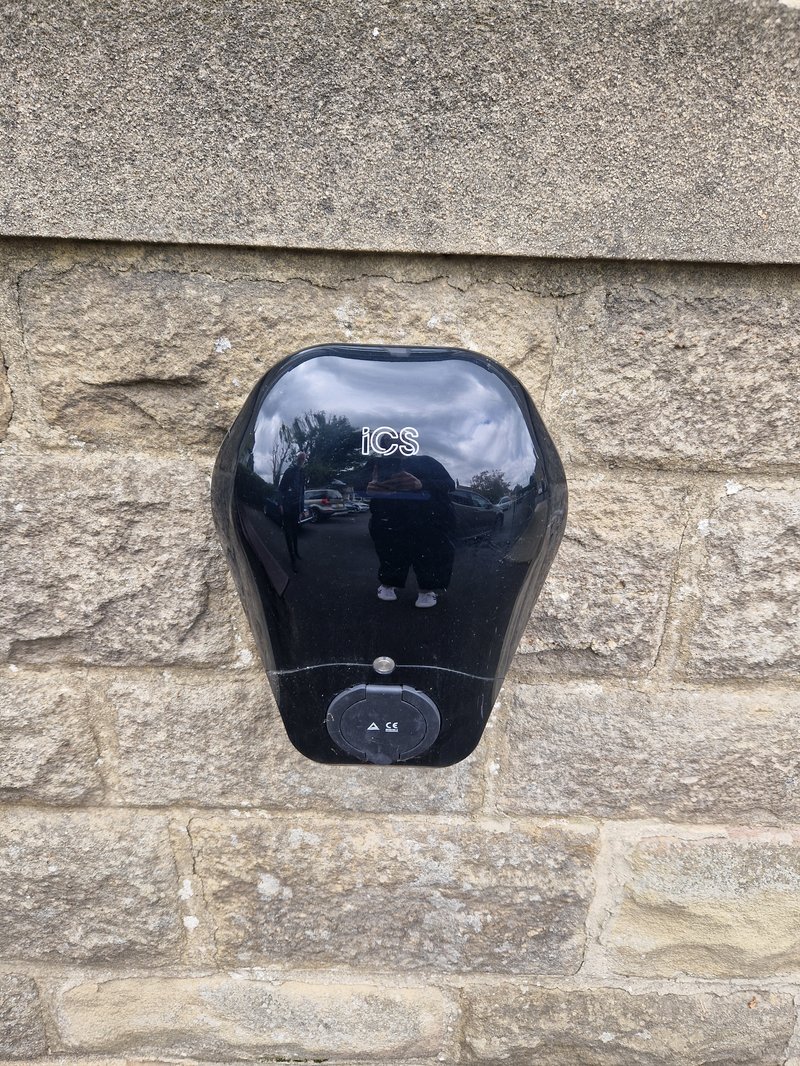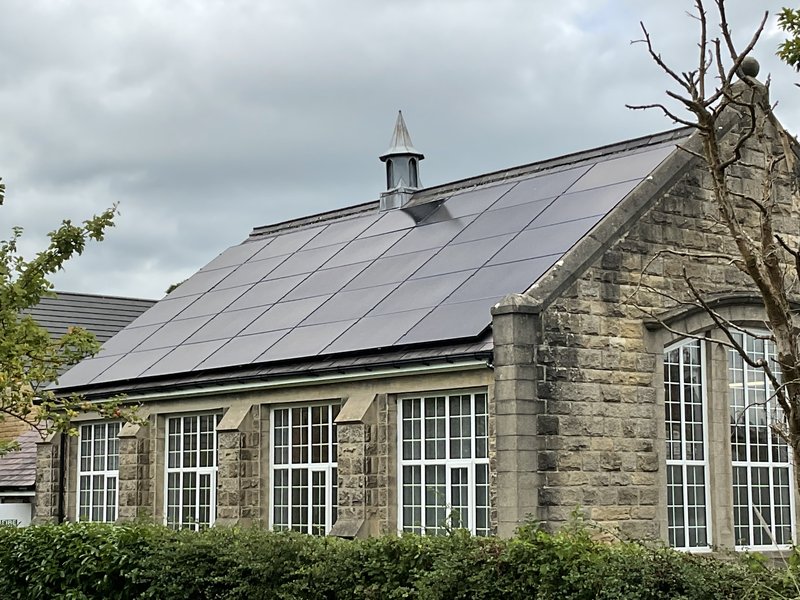At first glance, the small chapel appears to be a charming rural church like many others. Its dark grey stones give it a timeless look whilst the large white windows make Killinghall Methodist Church, near Harrogate, warm and welcoming.
Walking around, a different story is told by the south side of the building with the roof covered by photovoltaic panels, a heat pump has been installed, a bike rack encourages cyclists to stop while the electric car charging station is a statement to Killinghall’s commitment to achieving net zero.
As a rural church, Killinghall recognises the need to attract more than just its congregation to utilize its premises. Following extensive refurbishment, the church is now ready to become the heart of the village, offering a range of facilities for the community. One of its features, the electric car charging station, is not commonly found at a church.
A few years ago, the then minister proposed making the building more user-friendly. As nearby Harrogate continued to expand, many people, especially young families, started moving to the area. As a result, Killinghall is on the verge of becoming a suburban church.
After the old church was taken down in 1973, the congregation moved to the Sunday school built in the 1960s. “A refurbishment was long overdue. The heating was expensive, windows had old metal frames that didn't fit, and it did not look good,” explains Revd Ron Hicks, supernumerary minister of Killinghall.
Despite being relatively modern, refurbishing the church had its limitations. The solid stone, 18 inches thick, walls cannot be insulated so the team decided to insulate the roof instead and installed 35 PV panels (thanks to the Tea & PV project of the Yorkshire North & East Methodist District). The electricity generated is used for the church, stored in three batteries with the extra power sold.
Some in the church also wanted it to look more modern. The congregation gathered, debated and agreed to remove some items (the pulpit and the communion rail for instance), change the windows and use a lighter paint colour on the walls. “As much as was feasible, we recycled and reused parts taken down during the refurbishment. For instance, the sanctuary’s folding doors were used to make shelves in the storage room.
Killinghall is also one of the locations for the cafe Resurrected Bites. “We have had a well-equipped new commercial kitchen fitted to cater for the cafe,” says Ron. “By hosting the cafe, Killinghall participates in a project fighting food poverty, loneliness and food wastage, whilst becoming the place to go for delicious lunches on Thursdays.”
The project was made possible through the generosity of several grantmakers, including FCC Communities Foundation which awarded £97,579 towards the project. FCC Communities Foundation is a not-for-profit business that awards grants for community through the Landfill Communities Fund. The Benefact Trust, Congregational and General Charitable Trust, Trustees for Methodist Church Purposes, and Forester Financial also provided grants without whom the project would not have been possible.

